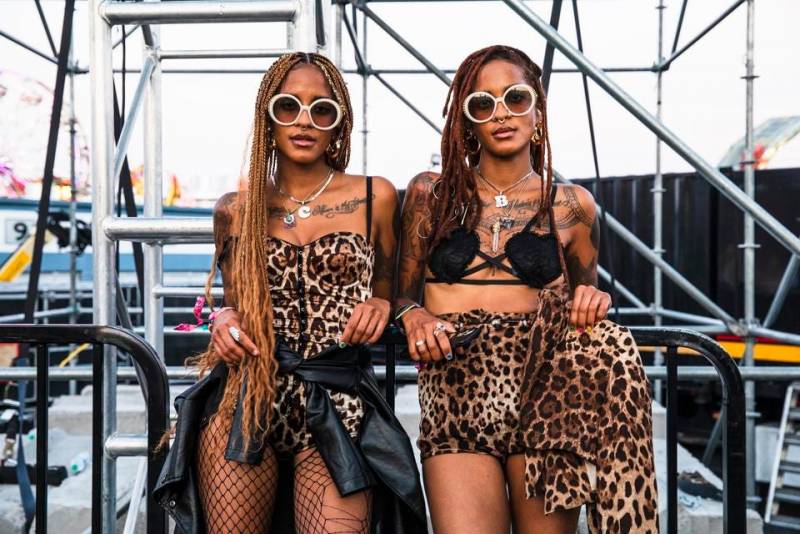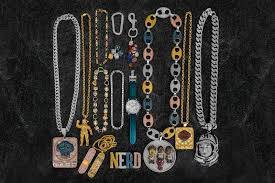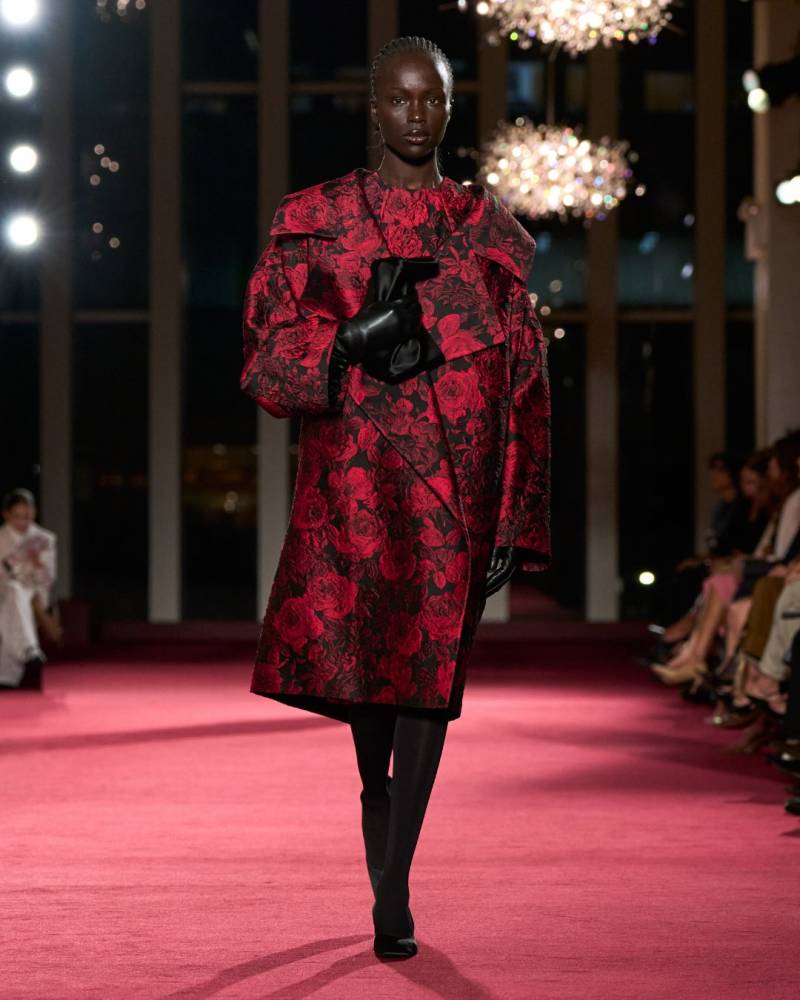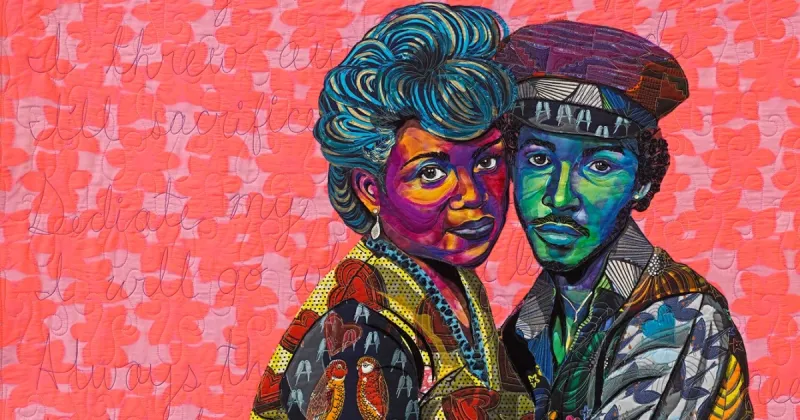Dynamic sister duo Coco & Breezy stun with their soulful and feel good heaters that get audiences grooving. Today, June 16, they release “Just Say (featuring. Tara Carosielli).”
The summertime-ready track brings sultry vocals, bouncy basslines, catchy lyrics and more. “It is a super special song to us,” Coco says. “When we were in the midst of making the song, we knew that it was going to be released for the summer, and we envisioned people finally being able to go outside, go out and listen to music.”
The burgeoning sisters boast performances at Coachella, Electric Daisy Carnival Las Vegas, Lightning In A Bottle and the Instagram Met Gala Afterparty. In addition, they have brand partnerships with DKNY, YSL, NBA 2k and H&M. Indeed, the sisters are continuing their mission to heal the world through their music.
Here, Coco & Breezy share with Forbes submerging themselves into changing the face of dance music, what it means to be a technically accomplished Afro-Latina female deejays and producers, what Black Music Month means them, the importance of Juneteenth and more.
This transcript has been edited for length and clarity.
Lisa Kocay: What was it like doing your first tour. I bet that was so exciting.
Breezy: “For our first tour, [we played] some of the biggest festivals and we also supported some of the biggest artists: TOKiMONSTA, Diplo, LP Giobbi and Anna Lunoe. We're getting ready to do Brooklyn Mirage on the 19th [of June] with A-Trak and Duck Sauce. So I think that for us, it's been really fun and something that we want to start the conversation of even teaching people while you're touring how to balance being mentally and spiritually, because while on tour life could be very draining.”
Kocay: You have numerous brand partnerships. There's DKNY, YSL, NBA 2k and H&M. Can you discuss how these came to be and what it's like having these partnerships?
Coco: “It's been really cool experiences. And even with YSL, we've done social media campaigns for them, but then we've also deejayed about five or six of their amazing parties around the world.
“It's cool because with our partnerships, we mix in us telling our story through branding and our style, and then also certain brands we just sync our music for sometimes it's both.”
Kocay: How would you describe your fashion style in three words?
Coco: “Unapologetic, effortless and rocker.”
Kocay: You have submerged yourself into changing the face of dance music and what it means to be accomplished as Afro-Latina female deejays and producers. Can you further expand on that?
Breezy: “It's been a big conversation and a conversation that we're still having, but I think there's a lack of education of people knowing that Black and Brown people in the community started house music. Over the years it then became whitewashed. I would say [there’s] not as much diversity and not as inclusive when you see a lot of the festival lineups.
“I do think that in 2022 there's definitely been a lot more work of seeing more women and just seeing more Black and Brown people. But I definitely do think that there could be a lot of work because I can say that there are a lot of lineups where…we'll we don't mind being the first, but we don't want to always be the [one]. We've been the only women, the only women of color, the only Afro Latinas [and] the only women of color on a lot of these lineups.”
“But I also think that it's important for us to be in these spaces because if you go to [Electric Daisy Carnival] or a lot of these house and dance music spaces, the crowd isn't as diverse, and I do believe it has a lot to do with not having a diverse lineup. When it comes to music, especially house music, it's really about coming together as a community.”
Kocay: As it being Black Music Month, can you talk about what the importance of it is to you?
Coco: “The importance for Black Music Month, to me, is honoring where music came from. You think about jazz, think about rock music, you think about almost every genre—most of the genres originated from Black people in America. I just want people to know and not forget that. I think that it's important to do the research and really understand it because there's so many communities, especially in dance music, that are making dance music but they get put into sub genres and they don't get invited into the pop genre of dance music. So I think it's time to open up the sub genres and put them into the actual big dance genres. Because what happens is a lot of non-Black people create music [where] they sample Black people, Black music, they get inspired by it or they use Black women's or Black men's voices and don't credit them. And so I think that it's time for them to acknowledge that if you're taking from the culture, at least give the credit and give the opportunities to the ones who created it and started it.”
Kocay: Your single comes out around Juneteenth. It's exciting that it's now considered a federal holiday. Can you describe if that's important to you and if so, why?
Breezy: “Juneteenth is extremely important. Actually, we've been celebrating since we were younger when we were kids. We used to perform at the Juneteenth festival in Minnesota. We were on the dance team and it's actually interesting because it was already in our culture to celebrate Juneteenth. So I think that it's time for people, especially non-Black people who aren't familiar since it is a federal holiday…instead of taking that day to just not do anything, but taking the time out to actually understand the history of Juneteenth and pay respects to the holiday.”
Kocay: What do you think people can do to best celebrate Juneteenth if they're not familiar with it?
Coco: “I think research…because I know there's probably a lot of events that are celebrating Juneteenth. So I think that it is important to go to some of those. I think step one is to really even just take time out—me as a Black person, I'm even taking time out to do the research.”
Kocay: What do you think white people can do to be better allies?
Breezy: “I think a lot of times non-Black people make it the jobs of Black people to educate them. We weren't taught our history in school. So the same research that I'm doing to share with the non-Black person, I think that is kind of time for non-Black people to actually take the time out, to do the research as well and educate themselves, their friends about white privilege, educate them about our history and our culture.”




